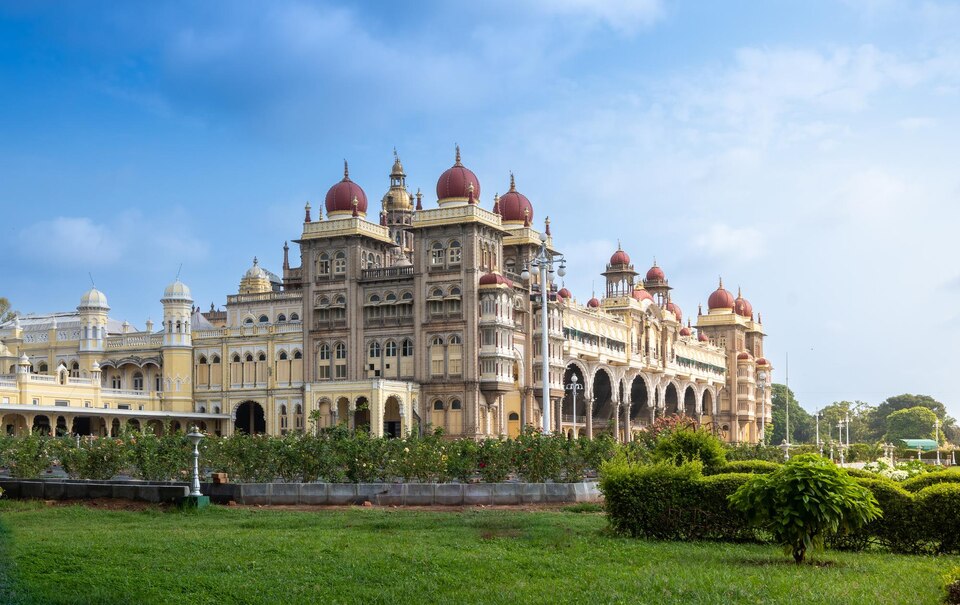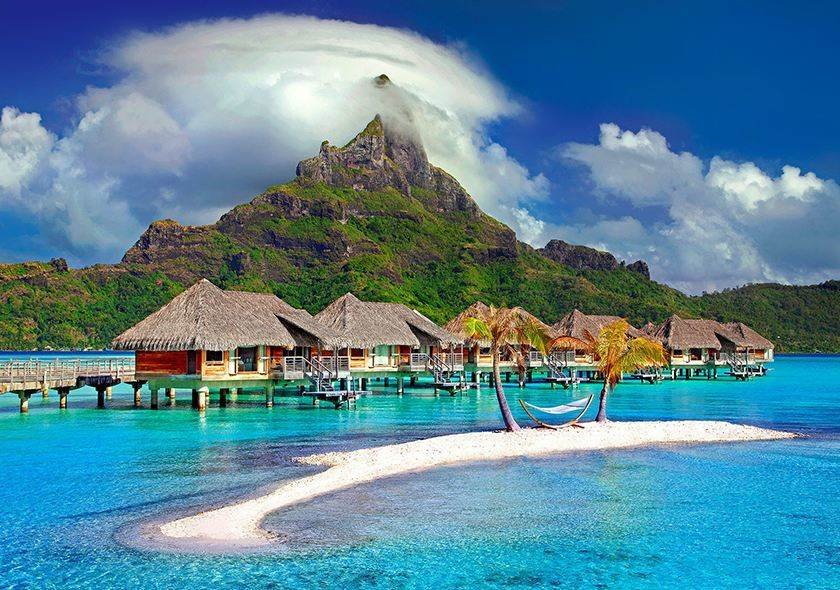Kerala
- Home
- Kerala
Kerala Travel Guide
About Kerala Tourism
Nestled on the southwestern coast of India, Kerala, fondly referred to as “God’s Own Country,” is a lush paradise defined by its palm-fringed beaches, serene backwaters, spice-scented hill stations, rich cultural heritage, and unparalleled biodiversity. Bordered by the Arabian Sea on the west and the Western Ghats on the east, Kerala boasts a topography and climate that have blessed it with some of the most scenic and tranquil landscapes in the world.
Kerala’s name is synonymous with wellness, nature, and culture. The state is renowned for its backwater houseboat experiences, centuries-old temples, majestic churches, ancient ports, and verdant tea plantations. Its heritage is deeply rooted in classical dance forms like Kathakali and Mohiniyattam, traditional martial arts like Kalaripayattu, and Ayurveda, one of the world’s oldest holistic healing systems.
Divided into 14 districts, Kerala offers something for every traveler—be it the serene beaches of Kovalam and Varkala, the backwaters of Alleppey and Kumarakom, the rolling hills of Munnar and Wayanad, or the wildlife-rich sanctuaries like Thekkady and Silent Valley. It’s also a leader in social indicators like literacy, healthcare, and women empowerment, giving visitors a culturally rich and progressive travel experience.
Kerala’s culture is a beautiful amalgamation of Hindu, Muslim, Christian, and Jewish influences, visible in its architecture, cuisine, festivals, and daily life. The state is also famous for its monsoon tourism, traditional boat races, spice plantations, and culinary delights like fish curry, puttu, appam, and Kerala sadya.
From rejuvenation therapies and eco-tourism to spiritual retreats and luxury resorts, Kerala is not just a destination—it’s a feeling of calm, celebration, and connection with nature.
Winter (October to February): This is the best time to visit Kerala, with temperatures ranging from 18°C to 28°C. The weather is perfect for sightseeing, beach activities, backwater cruises, wildlife safaris, and hill station stays. Major festivals like Onam, Christmas, and Thrissur Pooram take place during this time, offering rich cultural experiences.
Monsoon (June to September): Kerala becomes a lush green haven during the monsoon. Though travel might be interrupted by heavy rains, this season is ideal for Ayurvedic therapies and nature lovers. Waterfalls are at their peak, and off-season discounts on hotels make it budget-friendly.
Summer (March to May): The coastal areas remain hot and humid (up to 35°C), but hill stations like Munnar, Wayanad, and Thekkady offer a pleasant escape. This is a great time for exploring plantations, waterfalls, and off-season travel deals.
By Air:
- Kerala has four international airports: Trivandrum (Thiruvananthapuram), Cochin (Kochi), Calicut (Kozhikode), and Kannur. These are well-connected to major Indian cities and international destinations in the Middle East, Southeast Asia, and Europe.
By Rail:
- Kerala has an extensive railway network with major stations in Thiruvananthapuram, Ernakulam, Kottayam, Alappuzha, Kozhikode, and Palakkad. Regular trains connect Kerala to all parts of India including Delhi, Mumbai, Bangalore, Chennai, and Hyderabad.
By Road:
- Kerala is well-connected by national highways such as NH 66 (connecting Mumbai to Kanyakumari via Kerala) and NH 544 (connecting Coimbatore to Kochi). Buses operated by KSRTC and private players serve routes from neighboring states like Tamil Nadu and Karnataka.
By Water:
- Kerala’s unique waterway network is navigable by public ferries and private houseboats. Kochi and Alappuzha offer water transport services, and luxury cruise lines often dock at Kochi Port.
- Munnar: A charming hill station known for tea gardens, misty hills, and pleasant climate. Visit Eravikulam National Park, Mattupetty Dam, Echo Point, and the Tea Museum.
- Alleppey (Alappuzha): Often called the “Venice of the East,” Alleppey is famous for its backwaters and houseboat cruises through paddy fields, coconut groves, and quaint villages.
- Thekkady: Home to the Periyar Wildlife Sanctuary, Thekkady offers jeep safaris, bamboo rafting, spice plantations, and elephant rides.
- Wayanad: A nature lover’s haven, with attractions like Edakkal Caves, Banasura Sagar Dam, Chembra Peak, and Meenmutty Falls.
- Kochi (Cochin): A cultural hub featuring Fort Kochi, Jew Town, Mattancherry Palace, Chinese fishing nets, and art galleries. Don’t miss the Kochi-Muziris Biennale if you’re visiting during the festival season.
- Thiruvananthapuram: The capital city is known for the Padmanabhaswamy Temple, Napier Museum, Kanakakkunnu Palace, and nearby beach destinations like Kovalam and Varkala.
- Kumarakom: A quiet backwater town near Vembanad Lake, ideal for bird watching, Ayurvedic resorts, and canoe rides.
- Vagamon: A lesser-known hill station offering pine forests, trekking trails, and paragliding.
- Silent Valley National Park: A biodiversity hotspot with pristine forests, ideal for eco-tourism.
- Athirappilly and Vazhachal Falls: Among the most spectacular waterfalls in India, perfect for photography and picnics.
- Houseboat Cruise: Glide through the backwaters of Alleppey or Kumarakom in traditional kettuvallams converted into luxurious houseboats. Enjoy local food, sunsets, and the rhythm of water-bound life.
- Ayurvedic Spa Treatments: Experience authentic Ayurveda therapies like Panchakarma, Abhyangam, and Shirodhara at certified centers in Kovalam, Thekkady, and Varkala.
- Wildlife Safaris: Explore the Periyar Wildlife Sanctuary, Wayanad Wildlife Sanctuary, and Silent Valley National Park for sightings of elephants, tigers, gaurs, and rare birds.
- Attend Cultural Shows: Watch live performances of Kathakali, Mohiniyattam, Koodiyattam, and Theyyam at cultural centers in Kochi and Thekkady.
- Try Local Cuisine: Indulge in dishes like Karimeen Pollichathu, Malabar Biryani, Sadya (served on a banana leaf), and seafood delicacies. Visit local toddy shops for authentic flavors.
- Trekking and Adventure: Trek to Chembra Peak, explore Meesapulimala, go rock climbing in Munnar, and paragliding in Vagamon.
- Attend Festivals: Don’t miss Onam with its elaborate feasts and boat races, Thrissur Pooram with its grand elephant processions, and Vishu, Kerala’s New Year.
- Visit Museums and Palaces: Explore the Hill Palace Museum, Napier Museum, and Padmanabhapuram Palace for a deep dive into Kerala’s royal and colonial past.
- Explore Spice and Tea Plantations: Take guided tours through cardamom, pepper, and tea plantations in Munnar and Thekkady.
- Beach Activities: Enjoy sunbathing, surfing, parasailing, and beach yoga at Varkala, Kovalam, Cherai, and Marari beaches.
Kerala is not just a travel destination—it’s an immersive journey into a land that balances ancient traditions with modern hospitality, serene nature with vibrant culture, and spirituality with celebration. Whether you’re cruising through tranquil backwaters, meditating on a hilltop, exploring colonial towns, or relaxing on sun-drenched beaches, Kerala invites you to unwind and reconnect.
From its lush landscapes and flavorful cuisine to its warm-hearted people and centuries-old traditions, Kerala captivates the senses and soothes the soul. A trip here isn’t just a vacation—it’s a soulful experience that lingers long after the journey ends. Welcome to God’s Own Country!
Why Choose TAT for Kerala?
Experienced
Certified
Happy Customers
Local Offices
Frequently Asked Questions
Popular spots include Alleppey (backwaters), Munnar (tea gardens), Kochi (heritage city), Wayanad (hills), Thekkady (Periyar wildlife), and Kovalam (beaches).
October to March is ideal for general tourism. June to September is great for monsoon lovers and Ayurvedic treatments.
Known as “God’s Own Country”, Kerala is famous for its backwaters, houseboats, Ayurveda, spices, Kathakali dance, and lush greenery.
Kerala has three major international airports (Kochi, Thiruvananthapuram, Kozhikode), excellent roadways, and a strong railway network. Houseboats and ferries are used in the backwaters.
Yes, Kerala is among India’s safest states. It has a high literacy rate, helpful locals, and well-maintained tourist infrastructure.
Must-tries include Kerala Sadya (feast), appam with stew, Malabar biryani, fish molee, beef fry, puttu with kadala curry, and Kerala-style banana chips.



